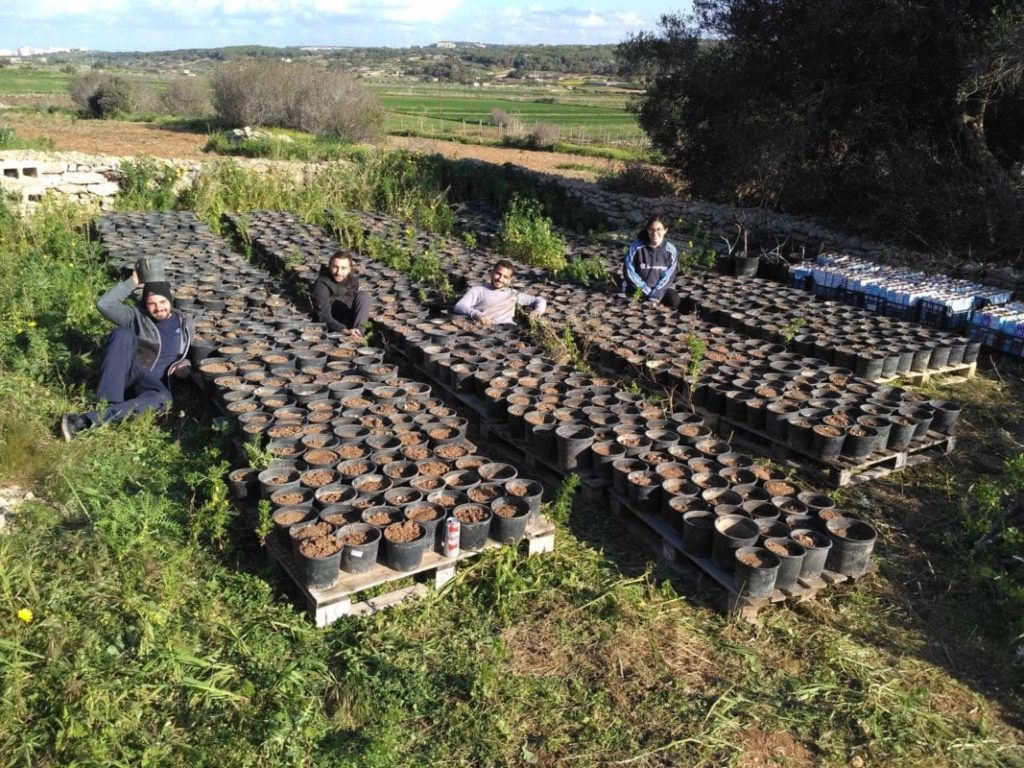I’m dreaming of a Green Christmas
‘Tis the season to be jolly… and green! As we begin to wrap up presents, decorate our houses and wish “all the best” to everyone around us, The Malta National Aquarium wishes to share some tips to have a greener Christmas.
As you can already imagine we waste so much paper on wrapping our gifts and end up throwing out so much packaging when we decorate our houses. Most of the packaging that holds our new bourbons for the Christmas tree is made of plastic, so we’d like to share some tips on how you can have a huge impact on the environment this Christmas, and this way you’d make it on to our and Father Christmas’ good list… meaning he can keep his potatoes and coal to himself.
Avoid over buying
While shopping for our loved ones we love to splurge and spoil them – but we challenge you to focus on detail this year and really put some thought into it. Here are some experiences a child might love
- A back of house tour here at the Malta National Aquarium
- Having a tree planted in their name in Ta Qali
- A donation to charity on their behalf
- Clothes or toys from a charity store
- A home-made gift
Enjoy a real Christmas tree
When it comes to the most important feature for your house – go bold and get a real Christmas tree. Consider getting a local plant which has adapted to our environment, and you get to keep it for the next year – your tree will grow with your family and you won’t be creating the demand for more plastic! Tra la la la!
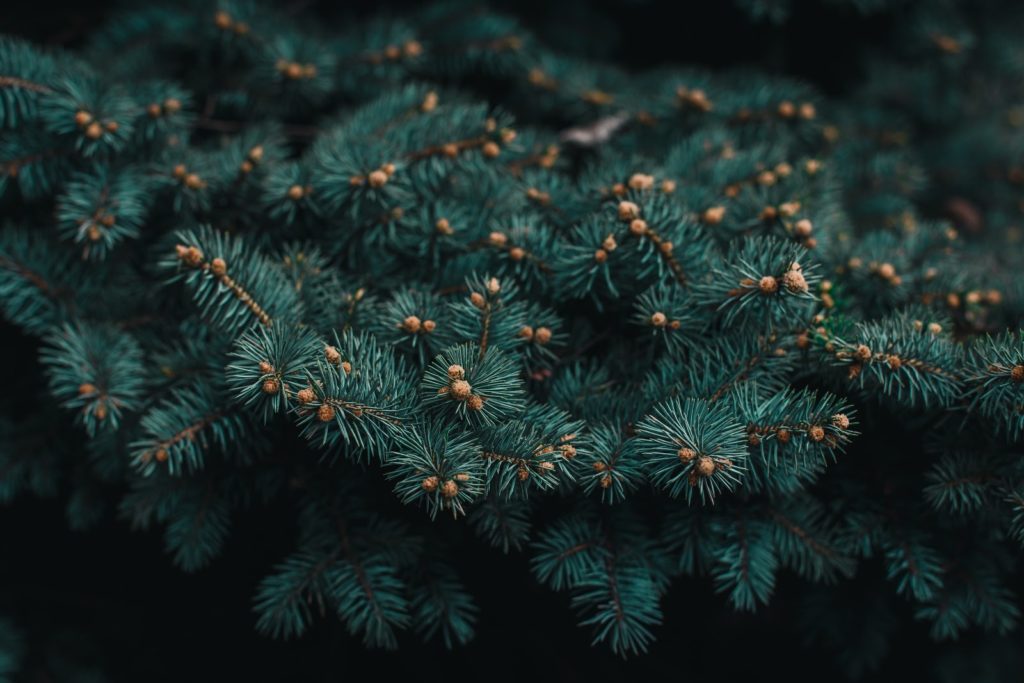
Alternative wrapping paper
Keep those single use plastics away – no plastic cups or cutlery, no need to use tape to wrap your gifts, well you don’t even need paper as you can use fabrics which you can reuse next year! Its perfect recycling and they look so classy too! When wrapping your presents, paper is still better than plastic as it is usually plant based and biodegradable. Despite this however natural resources are still being consumed so do so wisely. You can also use newspapers, leaves and flowers to decorate your gifts.
Have a zero-balloon policy
One thing we want you to avoid is balloons – those balls of fun are actually a ball of chaos for the environment as we do not get degradable balloons here in Malta and even when the packaging says so, it most often is a sad marketing trick.
Don’t waste food
Last season we had a real Christmas tree and we build our wreath of real twigs and branches. If you manage to do the same, send in your photos via the comment section below.
During our Christmas lunches this year we should be a little bit more lean. One third of the food cooked and prepared is often wasted, and this is just not what Christmas is about. If you do cook extra, freeze it or hand it out to the YMCA in Valletta, or to your neighbours or perhaps people you feel are in need of it. Also, if you are cooking fish, stick to sustainable sources.
Toys and play for marine life.
Now that title seems a little odd. What do you think marine life would need toys for? Well, fish play too and learn from it just as much as we did as children and still do as adults. In November an adorable Beluga Whale was gripped by the Rugby World Cup fever and had a toss about in the Antarctic Ocean. He was filmed returning a rugby ball to a group of marine biologists out on a boat and the video melted our hearts and exposed us to a vital behavior in aquatic animals. Just as we treat our pets to play full activity at home, like a dog and a frisbee or ball, all animals can engage in play. While this particular case made us all smile, the back story is worth reading. Researchers are indicating that this whale is a beluga who may have escaped captivity where he was being trained by the Russian military. In showing such calmness and a human-like behaviour, we can add that the beluga is indeed at risk, as even if this one spent three months in the wild, he exposes himself to threat by being so approachable. Hvaldimir may have made the headlines, however the activity showed an even deeper story. Where did he come from? Is he going to be safe?
Check the footage out (via The Guardian) and view the one minute clip here.
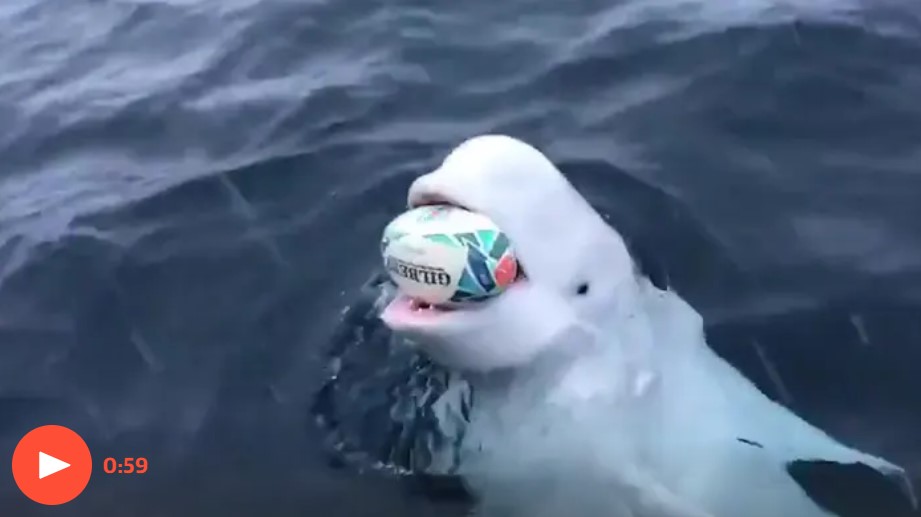
At the Malta National Aquarium we have a bunch of playful residences, none more so than our Octopus. These masters of disguise are also experts at play, and can unscrew jam jars and even fit inside them – so the next time you can’t open that jar, you know who to call.
Through play the animals avoid developing stereotypic behaviours which is an indication of poor psychological well-being. By giving the octopus jars, and other toys to play with, he or she will develop more skills and do more random things that can help develop muscle memory and solve problems. We often give our octopus a treat like an ice lolly as seen below and the game for him is to try to get to it through a ball as seen in the images below. The octopus must rotate, grip the ball, twist, turn and engage with the object to have his treat.
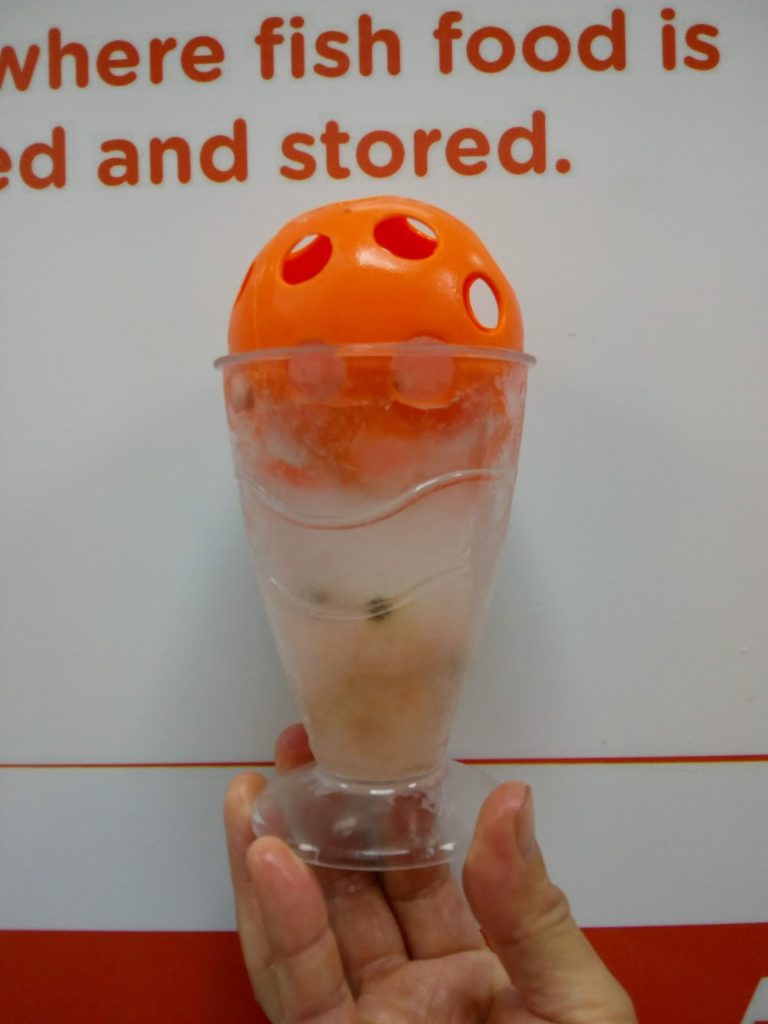
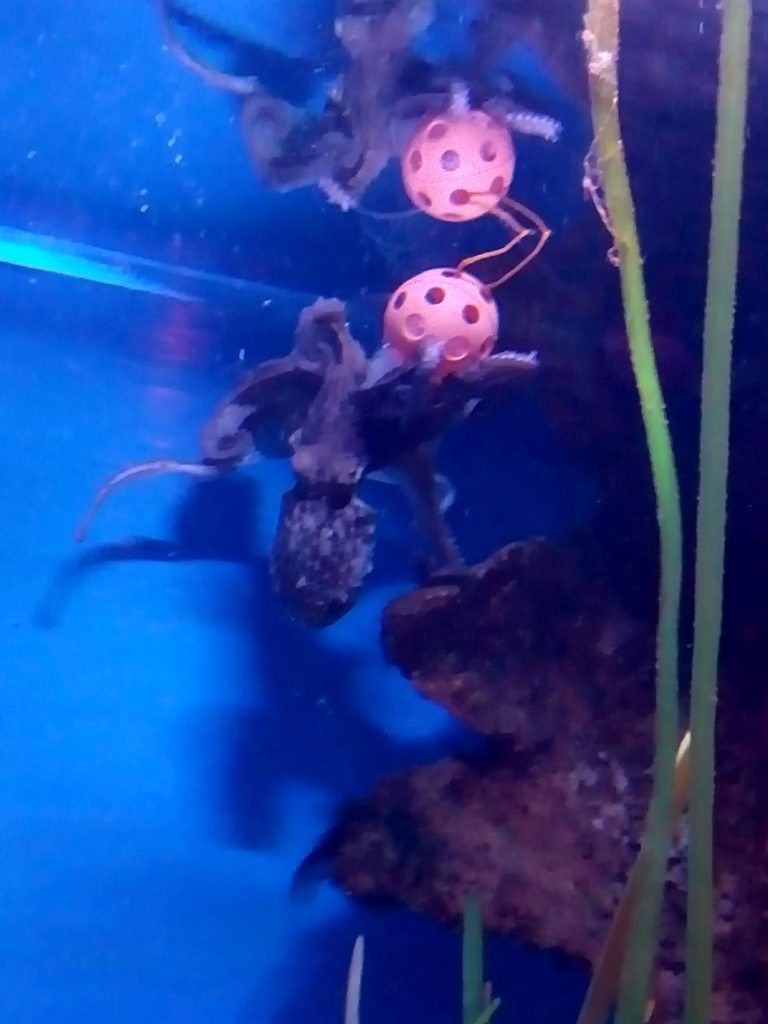
Spotlight on an NGO planting indigenous trees in Malta
As part of a greener Malta, we caught up with Geraldine Sammut at Malta National Aquarium who shared her insights on being part of ACT, the NGO that is making our islands Greener! We asked her 10 questions about their mission:
-
What made you set up an NGO?
ACT started out around three years ago now. When we looked around us, there were loads of other NGOs doing great work, and we felt like we could also contribute to this new culture of NGOs taking on the role of the opposition but in our own way. We just needed to act! So that’s why the name of the organization. We saw a lot of eNGOs around (environmental NGOs), but not a lot of NGOs dealing with health in Malta for example, or the lack of support for and pride in the Maltese arts. And so we wanted to create an NGO that encompasses all those things – a community of people that works for a better Malta holistically.
- Does Malta need more?
Yes, always! I think what makes ACT unique from other NGOs is that our main focus is on providing research-based solutions and impacting policy-making directly. We want to incite change in the only way that it can possibly happen quickly enough to make a difference; giving the government the strategies and ideas it needs to both make the people happy and its own agenda happy. We just want to see Malta reach its full potential, no matter who’s in the limelight for it.
- What can our government do more to help make Malta greener?
Supporting indigenous species which are more likely to survive and thrive in our climate, respecting the natural landscape, enshrining green public spaces as one of the key aspects of quality standard of living for Maltese people. Possibly the most important idea is a sustainable transport infrastructure. We need more public transport, like smaller vans that go to remote villages directly, more frequent routes, Maltese companies given incentive to support remote workers, incentives for motorcyclists and cyclists (and proper biking lanes), free public transport for students, and so on. We’ve already seen a big improvement with the last budget – free public transport for all who are 75+ for example. More of that and less bypasses and widening of roads is the way to go.
- Do you ever feel opposition to your tree-planting initiatives?
We get a lot of support from other NGOs and from the public, which is amazing and helps keep us motivated. There’s a lot of positive press for trees and so everyone’s on board.
- Why the focus on indigenous species?
Indigenous species have had hundreds of years of getting used to our climate, soil and fungi, and learning how to contribute to the ecosystem. They’re stronger, healthier than non-indigenous species and are unique to our islands. They’re also part of our heritage; your great-great-grandfather saw the same trees and flowers you’re seeing now. They’re part of our literature, our art, our culture. We should take pride in that and want to conserve them for future generations. In addition, alien species, like the trees currently being imported from Turkey and Greece by Ambjent Malta, just don’t have the same likelihood of surviving. Bonus point: you can do it right here in Malta, no need to ship them over, no carbon footprint.
- What is the target?
The ambitious target is to grow 1,000,000 indigenous trees in ten years through Saġġar, a long-term project we’re working on together with the QLZH Foundation. Our other main goal is to protect our native gene and to rehabilitate the Maltese landscape. Do you remember the animal that you used to be on the Maltese 1c? That’s the Maltese weasel – il-ballottra. Seeing it is a rare sight nowadays, as is seeing a butterfly or a ladybird. As we destroy their natural habitat, so we are destroying them. We want to bring them back by bringing back our trees and shrubs first.
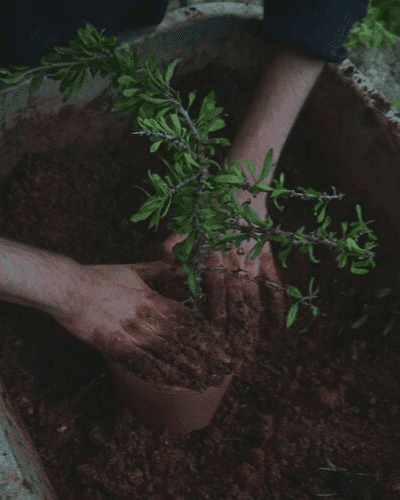
- How are you spreading awareness?
We have a website (www.act.org.mt) which we keep up to date with articles and reports. Social media is also a biggie right now – Facebook (ACT – Malta) and Instagram (@actmalta) mostly. NGOs like Moviment Graffiti are doing very well, and it’s incredibly encouraging to see so many people respond. We do a lot of outreach behind the scenes as well, we talk to people who have influence, who can help us execute what we have planned. We attend as many debates and open forums as we can to just go up to people and have a conversation about what can be done to help Malta out.
- Do recent tree-culling projects like Saqqaja hill annoy you?
Disclaimer: I’m a Saraċina born and bred, so this subject hits close to home (literally). It’s not so much annoying as it is disappointing and disheartening. It’s a reminder that our mission to integrate both progress and sustainability for Malta is a tough one, and there’s still a long way to go. I don’t think the solution to traffic and pollution is to make the roads wider by uprooting trees. The same thing is happening in Santa Luċija right now, and again, that’s disappointing. It shows that the government is out of touch with real long-term solutions for our country at this moment. But we’re willing to keep proposing solutions and fight for better projects to improve infrastructure. As a daily car-driver, if I had access to an efficient public transport system, I’d gladly stop using my car. Less hassle for me in the morning.
- Do you have a favourite plant?
My favourite plant is one of the trees we’re trying to grow more of – the Holm Oak (ballut ). I have 12 of them growing in my backyard so I’ve become attached to them. One day they’ll become beautiful trees planted in a field somewhere for others to enjoy. Every time I see them, they give me a little piece of happiness.
- Any advice for our young readers
The situation can feel overwhelmingly hopeless right now with what feels like a new tree getting torn down every other week, but change is real and it happens every day. If you want to gain back some power, you can. Join an NGO, take up gardening at home, talk to your parents and friend circle about how much green public spaces and clean air matter. Change happens in two ways – big movements, and small movements. Every ordinary day is an opportunity for a small movement. You just need to grab it and go with it when it comes your way. Sooner or later, those small movements will be as effective as a full-blown hundred-person protest. And you’ll have done it all on your own.
